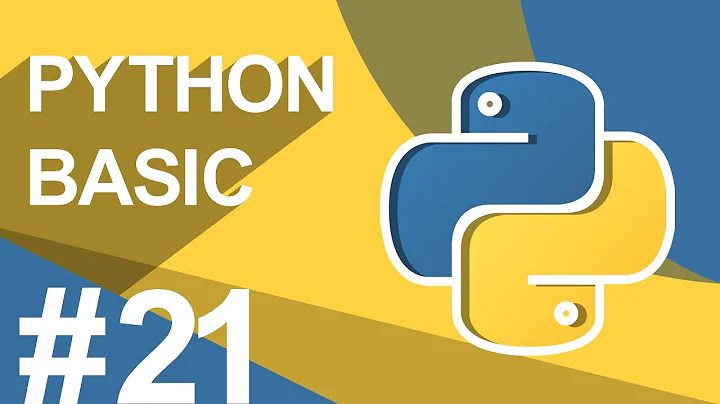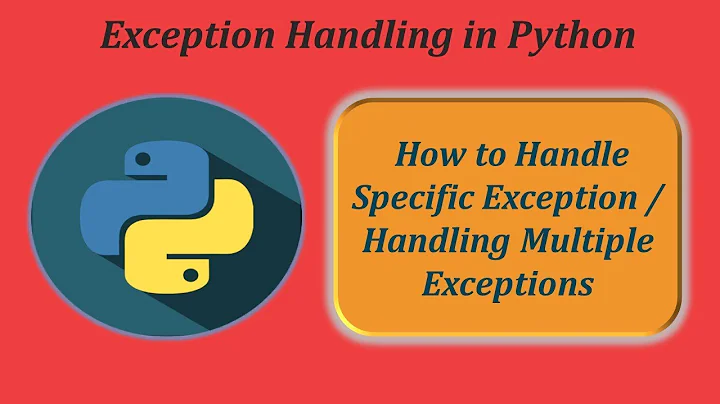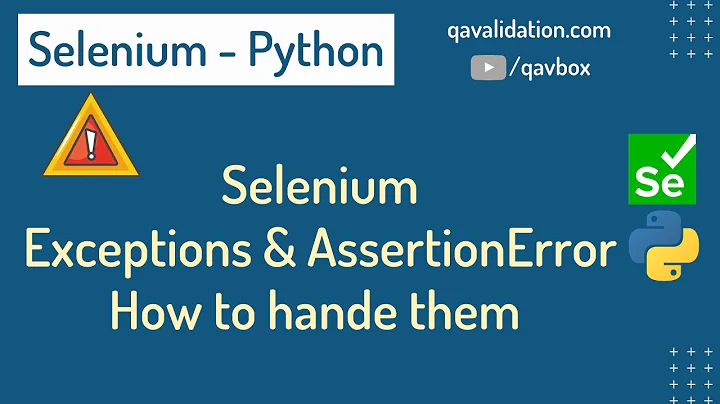Handle specific exception type in python
Solution 1
Well, really, you probably should keep the handler for KeyboardInterrupt separated. Why would you only want to handle keyboard interrupts in debug mode, but swallow them otherwise?
That said, you can use isinstance to check the type of an object:
try:
stuff()
except Exception as e:
if _debug and isinstance(e, KeyboardInterrupt):
sys.exit()
logger.exception("Normal handling")
Solution 2
This is pretty much the way it's done.
try:
stuff()
except KeyboardInterrupt:
if _debug:
sys.exit()
logging.exception("Normal handling")
except Exception as e:
logging.exception("Normal handling")
There's minimal repetition. Not zero, however, but minimal.
If the "normal handling" is more than one line of code, you can define a function to avoid repetition of the two lines of code.
Solution 3
You should let KeyboardInterrupt bubble all the way up and trap it at the highest level.
if __name__ == '__main__':
try:
main()
except KeyboardInterrupt:
sys.exit()
except:
pass
def main():
try:
stuff()
except Exception as e:
logging.exception("Normal handling")
if _debug:
raise e
Solution 4
Either use the standard method mentioned in the other answers, or if you really want to test within the except block then you can use isinstance().
try:
stuff()
except Exception as e:
if _debug and isinstance(e, KeyboardInterrupt):
sys.exit()
logging.exception("Normal handling")
Related videos on Youtube
Falmarri
Updated on July 09, 2022Comments
-
 Falmarri almost 2 years
Falmarri almost 2 yearsI have some code that handles an exception, and I want to do something specific only if it's a specific exception, and only in debug mode. So for example:
try: stuff() except Exception as e: if _debug and e is KeyboardInterrupt: sys.exit() logging.exception("Normal handling")As such, I don't want to just add a:
except KeyboardInterrupt: sys.exit()because I'm trying to keep the difference in this debug code minimal
-
Velociraptors over 13 yearsYou beat me by 30 seconds, I think
-
 Falmarri over 13 yearsThis is on an embedded system running without a shell. So we could only possibly get a keyboard interrupt in debug mode. So we just handle all exceptions.
Falmarri over 13 yearsThis is on an embedded system running without a shell. So we could only possibly get a keyboard interrupt in debug mode. So we just handle all exceptions. -
mipadi over 13 years@marcog:
except Exception as eis valid in Python 2.6+. -
 Paulo Scardine over 13 years-1: 'else' should be 'except', 'else' clause is for code to be executed if there is no exception.
Paulo Scardine over 13 years-1: 'else' should be 'except', 'else' clause is for code to be executed if there is no exception. -
Lex over 13 yearsYes, 'else' branch will be executed when there is no exception. It's just for example. But you are right I should edit code example to show 'real' program state.







![[Python Programing] - Lesson 5: Python Exceptions Handling](https://i.ytimg.com/vi/L-UB2pfDI8c/hq720.jpg?sqp=-oaymwEcCNAFEJQDSFXyq4qpAw4IARUAAIhCGAFwAcABBg==&rs=AOn4CLCAWZbvy8nPHO37b3GAyGPDmLaGQg)
